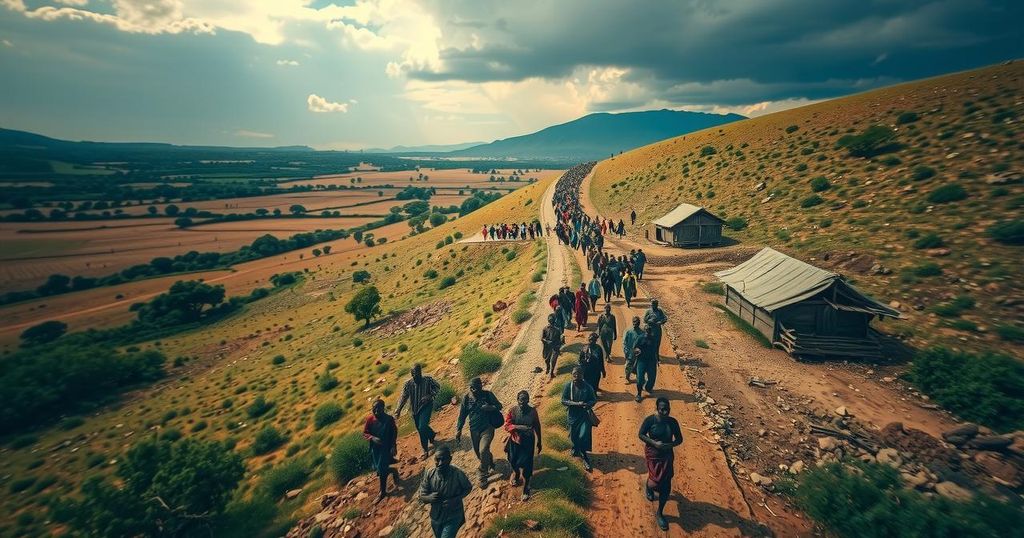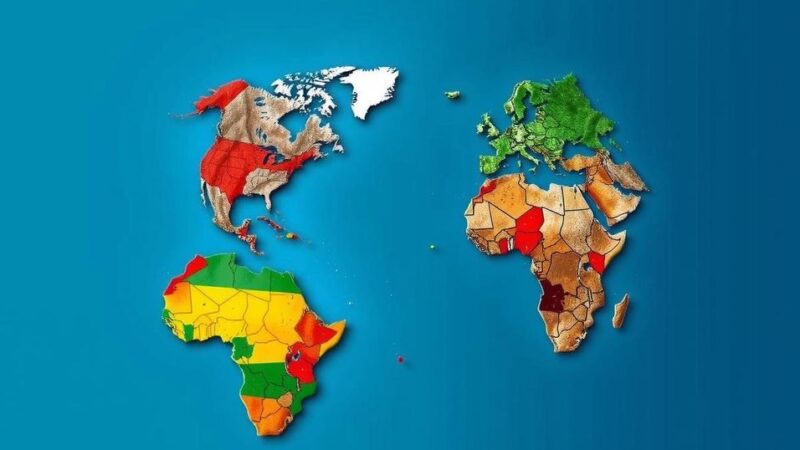Human Rights Watch has raised alarms over the severe risks faced by Sudanese refugees in Ethiopia due to ongoing clashes between Ethiopian forces and militias. The Amhara region, home to thousands of refugees fleeing Sudan’s civil war, is where these individuals are facing continued violence, including assaults and kidnappings. Furthermore, HRW criticized the Ethiopian government for inadequately securing refugee camps located in conflict-prone areas, leaving countless refugees vulnerable.
Human Rights Watch (HRW) has issued a grave warning regarding the threats faced by Sudanese refugees in Ethiopia due to ongoing clashes between Ethiopian federal forces and local militias. The conflict, particularly involving the Fano militia in the Amhara state, has intensified since April 2023, when the government reinforced its resolve to suppress paramilitary entities. Although a state of emergency in Amhara lapsed in June, unrest continues unabated, necessitating the deployment of federal forces as of September. The Amhara region, which borders war-torn Sudan, has seen a significant influx of refugees escaping the violent struggles between the Rapid Support Forces and Sudan’s de facto ruler Abdel Fattah al-Burhan. According to HRW deputy Africa director Laetitia Bader, these fleeing individuals have become victims of persistent abuses, marking a transition from one perilous environment to another. “These refugees have fled horrific abuses back home and urgently need protection, not further threats to their lives.” In a report released by HRW, evidence of serious violations against Sudanese refugees in Ethiopia is detailed, including acts of murder, beatings, looting, kidnapping for ransom, and forced labor, particularly near two critical camps. The findings are drawn from recent interviews with twenty refugees in three camps and a transit center. HRW holds Ethiopian authorities accountable, asserting that refugee camps were established in areas vulnerable to local conflict, with the government providing only minimal security measures. One refugee, who wished to remain anonymous for safety reasons, effectively illustrated the dire situation: “I wanted to be safe when I left Sudan, but the beatings and robbery (in Ethiopia) were a lot for us to take. My kids were crying.” Acknowledging the precarious location of the camps, the Ethiopian refugee service has stated they maintain “adequate security,” although the escalating violence has led to the closure of Awlala and Kumer camps as a precautionary measure.
The current situation regarding Sudanese refugees in Ethiopia arises from a confluence of conflict and humanitarian crises in both nations. The civil war in Sudan has displaced tens of thousands, intensifying the flow of refugees into Ethiopia. Within Ethiopia, the dynamics are further complicated by internal strife, particularly in the Amhara region, where regional militias are engaged in fierce battles with federal forces. This backdrop has positioned Sudanese refugees, who have fled their own dire circumstances, in perilous situations once again amidst the violence.
In summary, Sudanese refugees in Ethiopia are encountering significant vulnerabilities as they navigate the hostile environment formed by ongoing violence between Ethiopian federal forces and militias. Reports from HRW elucidate the extent of threats, highlighting the abuses faced by these individuals. It is critical for the international community to recognize and respond to these urgent humanitarian needs and to hold Ethiopian authorities accountable for ensuring the safety and security of refugees within their borders.
Original Source: www.newarab.com






